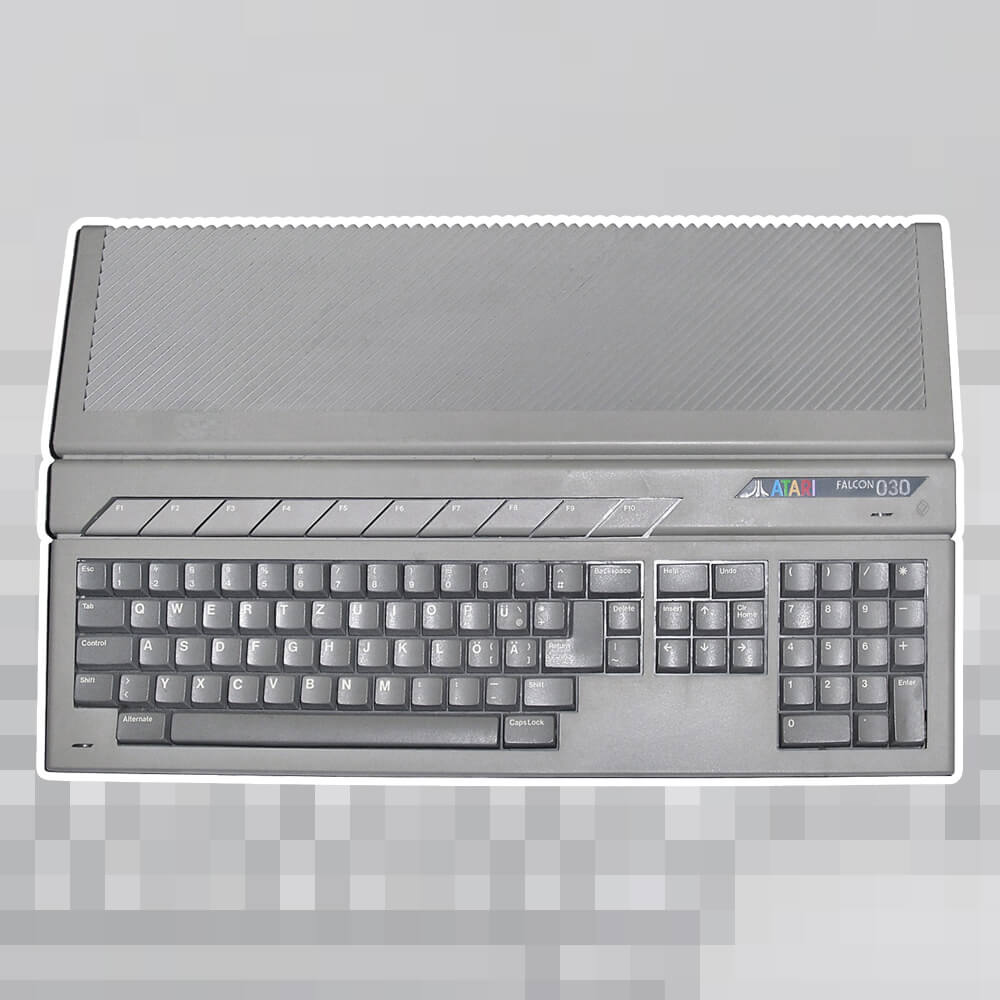Released in 1992, the Atari Falcon represents the evolvement of the Atari ST in the form of a high-end model.
System Overview
Loaded with a Motorola 68030 processor, the Falcon was positioned as a superior, more powerful machine than its nearest competitor, the Amiga 1200.
The Falcon’s life was short-lived though as in 1993, the product was cancelled as a result of company restructuring at Atari.

How To Emulate This System?
Atari Falcon emulation is reasonably well catered for, we recommend taking a look at RetroArch if you are seeking an all-in-one solution. RetroArch emulates a large number of systems including the Atari Falcon. RetroArch is a front end that utilises emulator ‘cores’, it is reasonably easy to use and has lots of good supporting documentation on how to use it. RetroArch is available across a number of platforms including Windows, Mac, Android, iOS, Raspberry Pi and many consoles. Take a look at our quick start guide for RetroArch which can get you up and running in 5 minutes.
Also, check out the other Atari Falcon emulators we enjoy using:
| Emulator | Description | Platform |
|---|---|---|
| Hatari | Hatari is an Atari ST/STE/TT/Falcon emulator for multiple platforms | Windows / Mac / Linux |
Raspberry Pi Atari Falcon Emulator
The Raspberry Pi is a compact single-board computer which has become very popular for emulating retro computers and consoles. You can buy the Pi very cheaply and has a whole community supporting and building accessories and applications that are compatible with it.
Significantly, for Retro Gaming enthusiasts, the Raspberry Pi offers fantastic round emulation of many systems. It offers the ability to play Atari Falcon games on HDTVs via HDMI or older CRT TVs via composite outputs. Combining the Raspberry Pi with Retropie, you have a device capable of emulating anything from the Atari 2600 to the Sony PlayStation.

A lifelong avid gamer and computing enthusiast, Matt has decades of Retro Gaming experience. Now over 40 years old, Matt now even considers himself retro, but fortunately, nobody has developed a Matt emulator (not yet at least!).